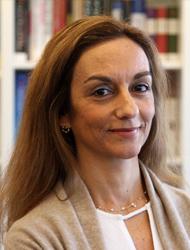
Healthcare should be based on I what call the three Rs – Relationship, Respect and Reflection. Assuming that the difficulty of communication and relationship with the other is rooted in the singularity of one’s own view of the world, I consider that health sciences courses and health professionals lifelong training require knowing how to be and not just knowing what to do and how to think. It is urgent to rethink the place and time of Care and it is essential to integrate into the professional routine Stories that Care, i.e. stories, that allow us to see reality through different perspectives, providing thickness to our humanity.
The 6th Dash Symposium The Doctor as a Humanist has unveiled and underlined the gaps that can be found in the surgery context and that go well beyond the operating theatre walls. It has gathered speakers from many different parts of the world, with various medical and nursing specialties, and experts in Arts, Humanities and Social Sciences — all of them with singular experiences both as healthcare provider and as patient. The alignment among all who took part in this three days symposium was in fact a house where all the participants and speakers could meet to reflect upon what makes us human and how to preserve our human nature when we are faced with illness/disease/sickness. The alignment was not only achieved among the individual speakers and audience, but also among the organizers: The Doctor as a Humanist (Jonathan McFarland); i3S/University of Porto | Group of Studies and Reflection in Narrative Medicine – GERMEN (Susana Magalhães); and The European Society of Narrative Medicine — EUNAMES (Maria Giulia Marini).
The sharing of experience (lived by surgeons, patients, different health professionals who interact at the border of the surgical environment and healthcare humanities experts) was enlightened by the excellence of the input of all the plenary sessions, short communications and roundtables.
Some of the issues discussed at the Symposium, that will surely need to be revisited in the near future, are listed below:
- Strategies for getting individual narratives integrated as part of the diagnosis, therapeutic interventions and advanced plan of care;
- lack of literacy both by those who care and those who are cared;
- systemic factors that lead to unnecessary surgeries and overtreatment;
- the need for value based medicine and outcomes that matter to patients;
- bridging the gap between the hospital and the community;
- bringing visibility to the invisible in the realm of illness and caring for the healthcare providers as well
- Deconstructing binary reasoning not only in healthcare related issues but also in thinking about and thinking with narrative medicine
The last day of the Symposium, hosted by EUNAMES, provided an important framework for the future of Arts and Humanities in Health, not only as essential tools of care, but also as therapeutic pillars of our humanity and the scaffold for health sciences education and research.
The Doctor as Humanist is planting seeds that will certainly change the way healthcare is perceived not only in educational settings, but also in every place of Care. It makes a difference in our current world, bridging borders and shifting mindsets.
GERMEN is part of this route and will go on sharing to care and caring to share, connecting narrative bioethics, narrative medicine and transdisciplinary Dialogism in the community, where we are all invited to take active part in healthcare provision, training/education and management.
